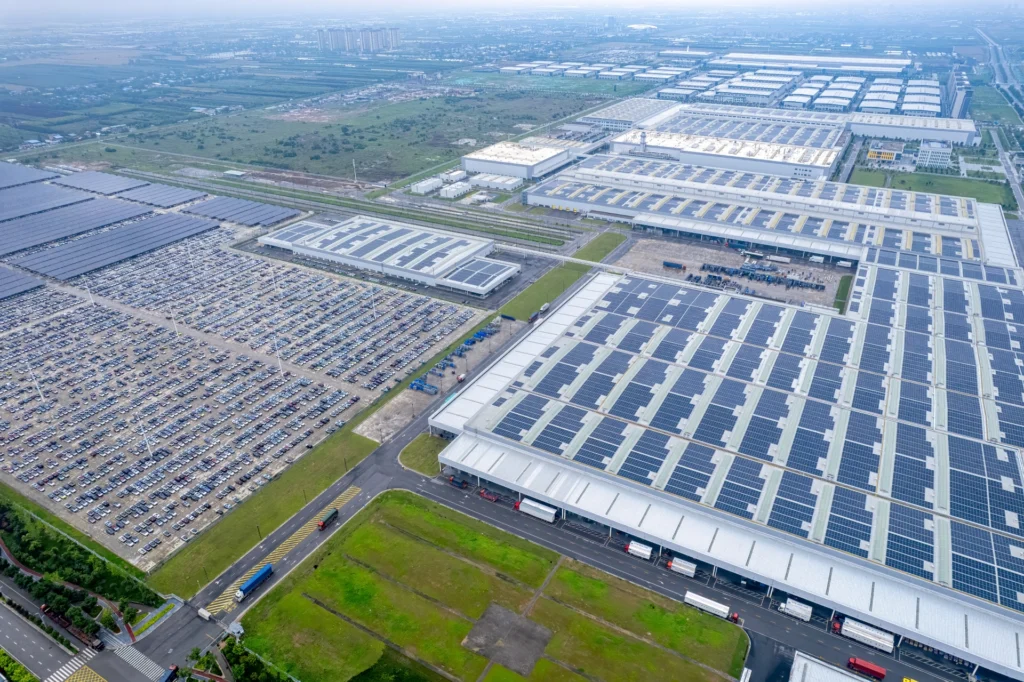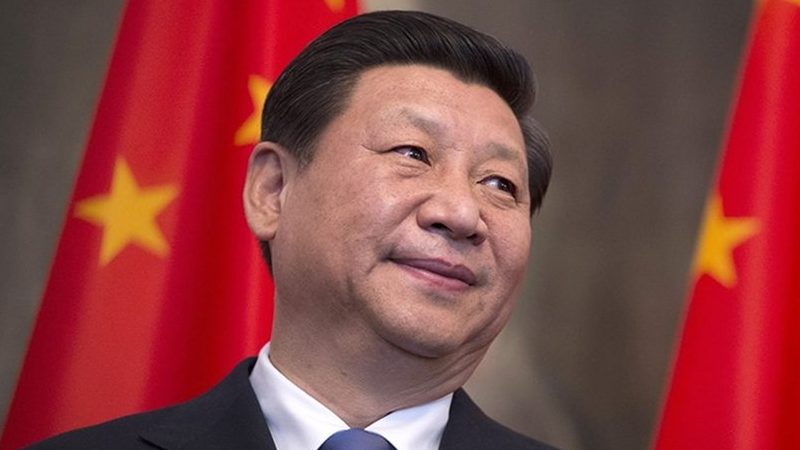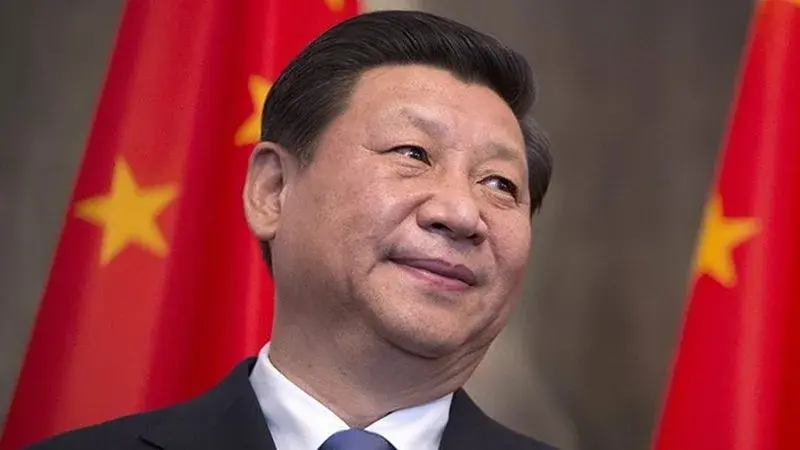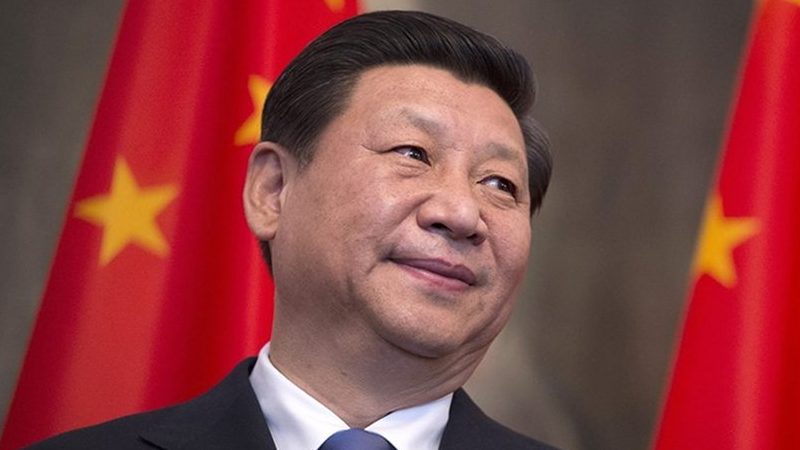At the meeting between 26 member countries, proposals to establish new marine protected areas and revise catch limits for krill are rejected, while existing krill management measures are rolled back. Australia says it's a "backwards step", putting the Antarctic ecosystem at risk.
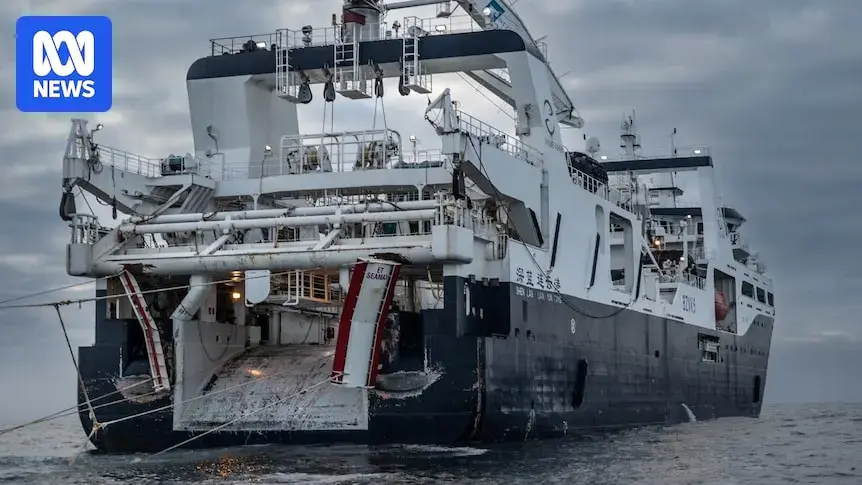
cross-posted from: https://feddit.org/post/4332042
> Australia has described the outcome of a meeting between members of the Commission for the Conservation of Antarctic Marine Living Resources as a "backwards step". > > Attendees said Russia and China vetoed all proposed measures, including one to renew existing krill management measures. > > Conservationists say member countries should regroup and figure out how to tackle Russia and China ahead of the next meeting in 2025.
The Nordic nation might be the first to receive commercial power from space.
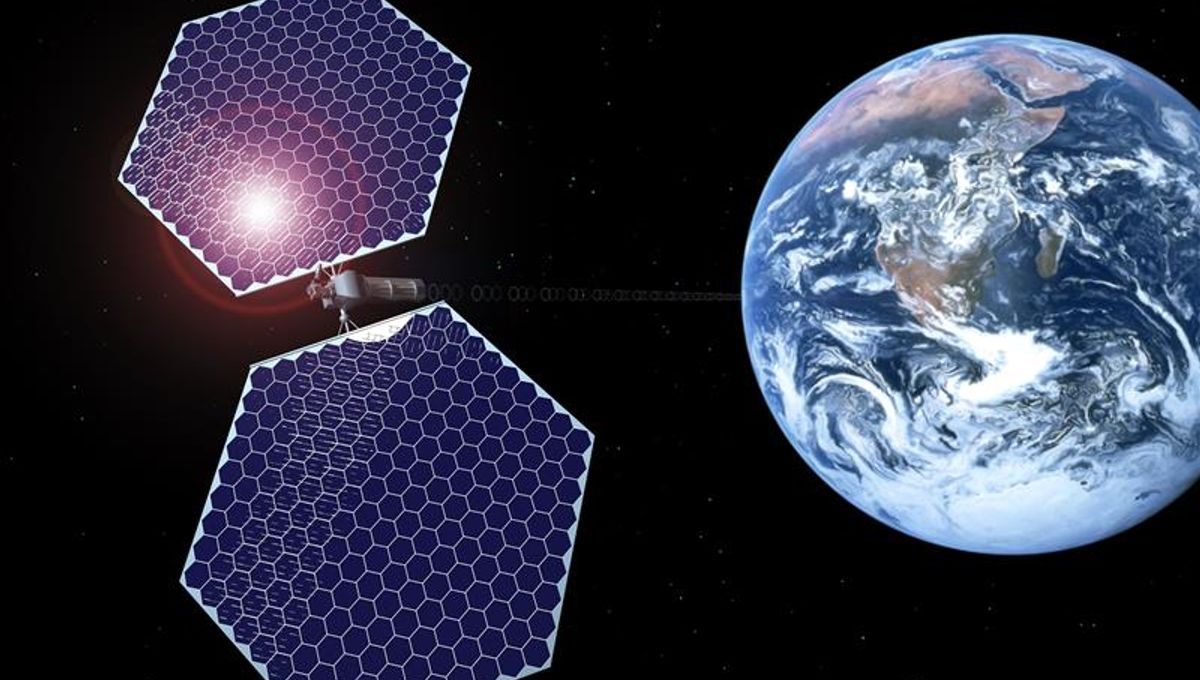
UK-based company Space Solar is partnering with Reykjavik Energy and Icelandic sustainability initiative Transition Labs to develop a space-based solar power plant that can deliver about 30 megawatts of electricity – potentially enough to power between 1,500 and 3,000 homes – from 2030. The system will collect sunlight in space through solar panels and then transmit it as radio waves at a specific frequency to a ground station, where it will be converted to electricity for the grid.
The satellite is expected to be scalable and quite big. Even if a full version of their CASSIOPeiA power array is not built, we are talking about the heaviest single object in space that is not a space station, and when all the arrays are splayed out, much larger than the International Space Station.
The company aims to have a scaled-up version of the system in space by 2036, which would supply gigawatts of electricity.
At the meeting between 26 member countries, proposals to establish new marine protected areas and revise catch limits for krill are rejected, while existing krill management measures are rolled back. Australia says it's a "backwards step", putting the Antarctic ecosystem at risk.
cross-posted from: https://feddit.org/post/4332042
> Australia has described the outcome of a meeting between members of the Commission for the Conservation of Antarctic Marine Living Resources as a "backwards step". > > Attendees said Russia and China vetoed all proposed measures, including one to renew existing krill management measures. > > Conservationists say member countries should regroup and figure out how to tackle Russia and China ahead of the next meeting in 2025.
At the meeting between 26 member countries, proposals to establish new marine protected areas and revise catch limits for krill are rejected, while existing krill management measures are rolled back. Australia says it's a "backwards step", putting the Antarctic ecosystem at risk.

cross-posted from: https://feddit.org/post/4332042
> Australia has described the outcome of a meeting between members of the Commission for the Conservation of Antarctic Marine Living Resources as a "backwards step". > > Attendees said Russia and China vetoed all proposed measures, including one to renew existing krill management measures. > > Conservationists say member countries should regroup and figure out how to tackle Russia and China ahead of the next meeting in 2025.
In 2022, when China was still paralyzed by zero-COVID lockdowns, we published a note entitled “The Chosen Few,” which highlighted the growing concentration of European foreign direct investment (FDI) in China among a small number of firms, countries, and sectors. Two years on, we take a new look at EU investment in China, assessing what has changed since Beijing abandoned its strict pandemic-era curbs and opened to the world again.
- Completed EU greenfield investment in China rebounded over the past year to reach a record high of €3.6 billion in the second quarter of 2024. This surge came despite growing geopolitical and economic headwinds that led US and Japanese firms to pare back their investments in China. European M&A in China, by contrast, has slowed sharply over the past two years.
- To a greater extent than ever before, EU investments in China are being driven by Germany and its carmakers. German FDI made up 57% of total EU investments in China in the first half of 2024, 62% in 2023, and a record 71% in 2022. This was driven by auto-related FDI, which has accounted for roughly half of all EU investment in China since 2022.
- These investments are deepening the dependency of some of Germany’s largest companies on the Chinese market at a time when economic de-risking from China is a stated policy goal in Berlin and Brussels. As we saw in October, when the German government voted against EU duties on electric vehicle imports from China, these deepening ties can have a major influence on Germany’s policy toward China. This is likely to become a growing source of tension within the EU and between Europe and the United States.
- Several multi-billion-euro investments were announced in the first half of 2024, meaning that completed EU FDI levels are likely to remain high through the end of the year and into 2025. But these levels will probably come down in the years ahead. Much of the EU’s recent investment in China has been driven by a push to localize production, in part to insulate China operations from geopolitical tensions and trade barriers. Once this defensive capacity is built up, and in the absence of a more positive economic outlook, EU investment in China is likely to slow.
At the meeting between 26 member countries, proposals to establish new marine protected areas and revise catch limits for krill are rejected, while existing krill management measures are rolled back. Australia says it's a "backwards step", putting the Antarctic ecosystem at risk.

Australia has described the outcome of a meeting between members of the Commission for the Conservation of Antarctic Marine Living Resources as a "backwards step".
Attendees said Russia and China vetoed all proposed measures, including one to renew existing krill management measures.
Conservationists say member countries should regroup and figure out how to tackle Russia and China ahead of the next meeting in 2025.
cross-posted from: https://feddit.org/post/4327016
> Australia is reportedly set to boost its missile defence capabilities after the recent Chinese test of an intercontinental ballistic missile (ICBM) in the South Pacific, which has raised "significant concerns" in Canberra as the Indo-Pacific region enters a "missile age". > > In a speech on Wednesday, Australian Minister for Defence Industry Pat Conroy was quoted as saying by international news agencies [...] that his country plans to increase its missile defence and long-range strike capabilities. Conroy added that Australia will cooperate with its security partners -- the United States (US), Japan, and South Korea -- on issues of regional stability. > > Why does Australia need more missiles? > > "Why do we need more missiles?," posing this question, Conroy answered before the National Press Club in Canberra that "strategic competition" between the US and China "is a primary feature of Australia's security environment". > > Conroy added that that competition is "at its sharpest in our region", the Indo-Pacific, which is on the cusp of a new missile age, where missiles will also serve as "tools of coercion". > > [...]
cross-posted from: https://feddit.org/post/4327016
> Australia is reportedly set to boost its missile defence capabilities after the recent Chinese test of an intercontinental ballistic missile (ICBM) in the South Pacific, which has raised "significant concerns" in Canberra as the Indo-Pacific region enters a "missile age". > > In a speech on Wednesday, Australian Minister for Defence Industry Pat Conroy was quoted as saying by international news agencies [...] that his country plans to increase its missile defence and long-range strike capabilities. Conroy added that Australia will cooperate with its security partners -- the United States (US), Japan, and South Korea -- on issues of regional stability. > > Why does Australia need more missiles? > > "Why do we need more missiles?," posing this question, Conroy answered before the National Press Club in Canberra that "strategic competition" between the US and China "is a primary feature of Australia's security environment". > > Conroy added that that competition is "at its sharpest in our region", the Indo-Pacific, which is on the cusp of a new missile age, where missiles will also serve as "tools of coercion". > > [...]
Australia is reportedly set to boost its missile defence capabilities after the recent Chinese test of an intercontinental ballistic missile (ICBM) in the South Pacific, which has raised "significant concerns" in Canberra as the Indo-Pacific region enters a "missile age".
In a speech on Wednesday, Australian Minister for Defence Industry Pat Conroy was quoted as saying by international news agencies [...] that his country plans to increase its missile defence and long-range strike capabilities. Conroy added that Australia will cooperate with its security partners -- the United States (US), Japan, and South Korea -- on issues of regional stability.
Why does Australia need more missiles?
"Why do we need more missiles?," posing this question, Conroy answered before the National Press Club in Canberra that "strategic competition" between the US and China "is a primary feature of Australia's security environment".
Conroy added that that competition is "at its sharpest in our region", the Indo-Pacific, which is on the cusp of a new missile age, where missiles will also serve as "tools of coercion".
[...]
Im vergangenen Jahr noch feierten viele in China ausgiebig an Halloween. Dieses Jahr war das anders. Und das lag nicht am Taifun Kong-rey, sondern am rigiden Vorgehen der Behörden. Von E. Lamby-Schmitt.

Vor einem Jahr waren zu Halloween noch Tausende Menschen auf den Straßen. Mehrheitlich waren sie dort, um nach der Corona-Pandemie mal richtig zu feiern und sich zu verkleiden.
Es gab auch satirische und regierungskritische Kostüme. Zum Beispiel hatten sich auch Menschen als Corona-Helfer in weißen Schutzanzügen verkleidet, ein Symbol für Chinas strikte Null-Covid-Politik. Es gab vereinzelt Festnahmen. Kritik an der kommunistischen Regierung in China ist nicht erwünscht, genauso wenig wie Menschenansammlungen - Versammlungs- und Meinungsfreiheit gibt es in China nicht.
"Im vergangenen Jahr waren hier richtig viele Leute", erzählt Lü Lü. Sie arbeitet in einer Bar, direkt an einer der Straßenkreuzungen [in Shanghai], die im vergangenen Jahr von Menschenmassen überfüllt waren. "Aber dieses Jahr gibt es seit vergangenem Wochenende überall Polizei. Die Straßen sind mit Zäunen abgesperrt. Und manche Kostümierte wurden abgeführt."
[...]
Viele Kostümierte wurden nicht in die U-Bahn reingelassen. Am Ausgang war auch Polizei, manche mussten ihre Kostüme ausziehen oder ihr Make-Up entfernen. "Es ist strenger als im vergangenen Jahr," [sagt ein verhinderter Party-Teilnehmer].
[...]
Die Einschüchterung der Behörden hat in der Nacht funktioniert, die Straßen blieben weitgehend leer, und der Regen hat auch noch die letzten Feiernden vertrieben.
By Andrius Sytas
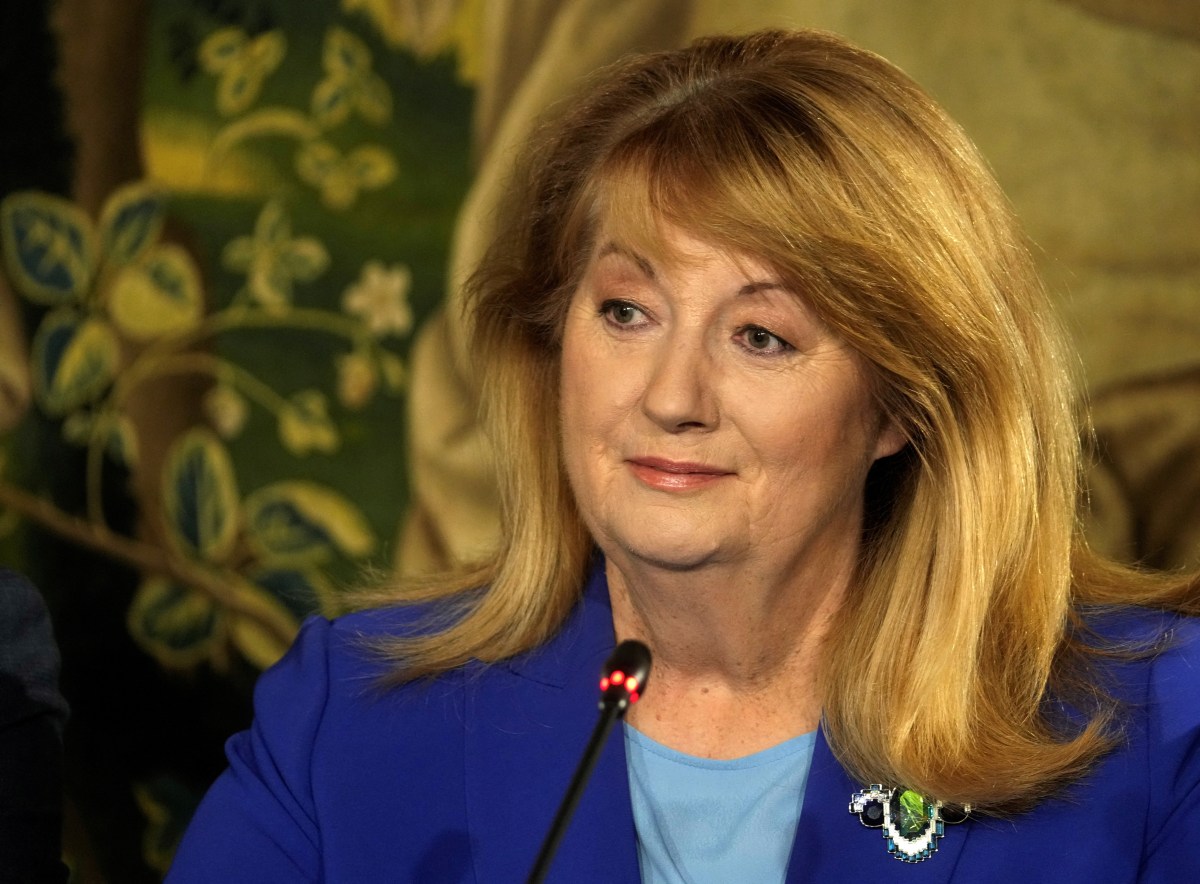
Lithuania’s incoming Social Democratic government will target defence spending of at least 3.5% of its gross domestic product, the party’s leader said on Monday.
The Baltic country of 2.9 million people which neighbours Russia will spend about 3% of GDP on its armed forces this year, according to NATO estimates, making it the military alliance’s sixth-biggest spender as a share of its economy.
Three-quarters of Lithuanians think Russia could attack their country in the near future, a Baltijos Tyrimai/ELTA opinion poll found in May, following its attack on Ukraine in 2022.
“Our election manifesto says that it should be not less than 3.5%, and this is unavoidable … security and defence will receive as much money as needed,” Social Democrat leader Vilija Blinkeviciute told reporters after her party’s landslide election victory on Sunday.
[Edit typo.}
It would be interesting to hear what the presumptive PM has to say about China's support for Russia's war in Ukraine.
Last year, the Chinese ambassador to France said that former Soviet nations had 'no effective status' of independence in international law, and he said that Crimea belongs to Russia. Lithuania’s foreign minister, Gabrielius Landsbergis, said back then that "[Chinese] diplomats [should] reminded we [Lithuania] are not post-Soviet countries but countries that were illegally occupied by the Soviet Union”.
On social media, Landsbergis then wrote: “If anyone is still wondering why the Baltic states don’t trust China to ‘broker peace in Ukraine’, here’s a Chinese ambassador arguing that Crimea is Russian and our countries’ borders have no legal basis.”
What does Lithuania's presumptive PM say about that?
Addition: Don’t give a free pass to Beijing for its aggressive behaviour
[...] The type of influence China exercises is not something we can accept as simply ‘what great powers do’. It launched a cyber attack on the Pacific Islands Forum, spreads online disinformation in the Pacific to undermine democracies and weaken Pacific partnerships, sought security agreements that lack public transparency, and undertaken various other malicious activities—such as hybrid and grey zone operations.
And that’s just in the Pacific—China is carrying out this malicious activity globally, not to mention being the main supporter enabling Russia’s war on Ukraine.
Of course, other significant powers seek influence, but responsible nations don’t behave like this [...]
The whole point of the post-World War II system of international rules and norms was that large countries, great powers, could not just do whatever they wanted. The post-War order is meant to provide a ...

The post-War order is meant to provide a check on the untrammelled power of the powerful, whether through military invasions or more subtle ways of bending the will of other countries—methods such as interference, coercion and malicious cyber intrusions.
Yet when asked recently how Australia would address China’s influence in the Pacific, Foreign Minister Penny Wong said, ‘China’s doing what great powers do, and great powers try to lift their influence and expand their influence in the region that they wish.’
[...]
The type of influence China exercises is not something we can accept as simply ‘what great powers do’. It launched a cyber attack on the Pacific Islands Forum, spreads online disinformation in the Pacific to undermine democracies and weaken Pacific partnerships, sought security agreements that lack public transparency, and undertaken various other malicious activities—such as hybrid and grey zone operations.
And that’s just in the Pacific—China is carrying out this malicious activity globally, not to mention being the main supporter enabling Russia’s war on Ukraine.
Of course, other significant powers seek influence, but responsible nations don’t behave like this.
[...]
Russian Central Bank Governor Elvira Nabiullina warned Thursday that “more drastic changes” in monetary policy may be needed as the country’s rumbling war economy drives inflation far above target levels.
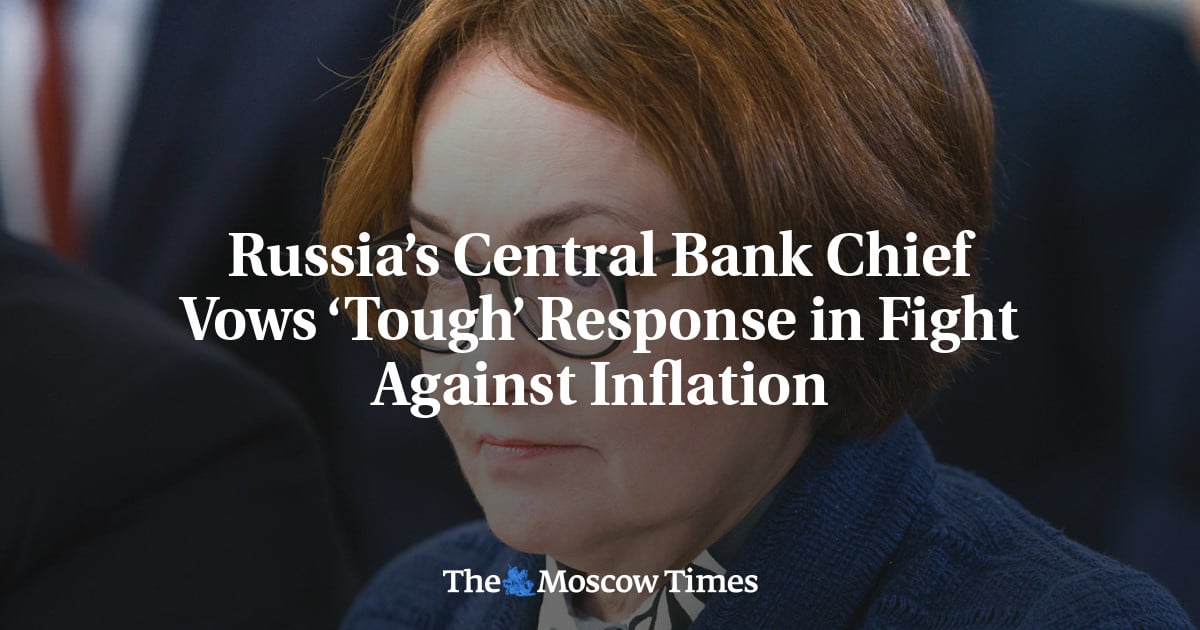
cross-posted from: https://feddit.org/post/4321125
> Russian Central Bank Governor Elvira Nabiullinawarned comments, made to a group of State Duma lawmakers, come a week after the Central Bank hiked its key rate to a record-high 21%, taking it even further than the emergency rate of 20% initially introduced after the February 2022 invasion of Ukraine. > > “With high inflation, economic growth cannot be sustainable,” the Central Bank head told Russian lawmakers. “It’s a dangerous illusion to think that increased inflation can be reliably kept within a certain zone.” > > “That’s why we’re not planning to take any shortcuts as we move toward our 4% target,” she added, defending the regulator’s tight monetary policy as an “inevitable reaction to what’s happening in the economy.” > > [...] > > Seasonally adjusted price growth in September rose to 9.8% year-on-year from 7.5% in August. Core inflation, meanwhile, increased to 9.1% from 7.7% over the same period. > > [...] > > Russia has faced volatile prices since President Vladimir Putin sent troops into Ukraine in February 2022, triggering a barrage of Western sanctions and strict countermeasures in a bid to stabilize the economy. So, too, has defense spending soared as Moscow ramps up arms production for the war in Ukraine. > > Russia’s draft budget for 2025, passed by lawmakers in its first reading last week, allocates around one-third of total state spending — or 6.3% of GDP — to the military, a figure unprecedented since the days of the Cold War. > > Given that so much of the current spending is driven by the state, which is less responsive to higher borrowing costs, analysts fear that raising interest rates may not be an effective measure against inflation. > > [...] > > Analysts have cautioned that Russia may be entering a period of “inflation without growth,” while also warning the economy is inching closer toward stagflation — when the economy grows slowly and prices shoot up.
Russian Central Bank Governor Elvira Nabiullina warned Thursday that “more drastic changes” in monetary policy may be needed as the country’s rumbling war economy drives inflation far above target levels.
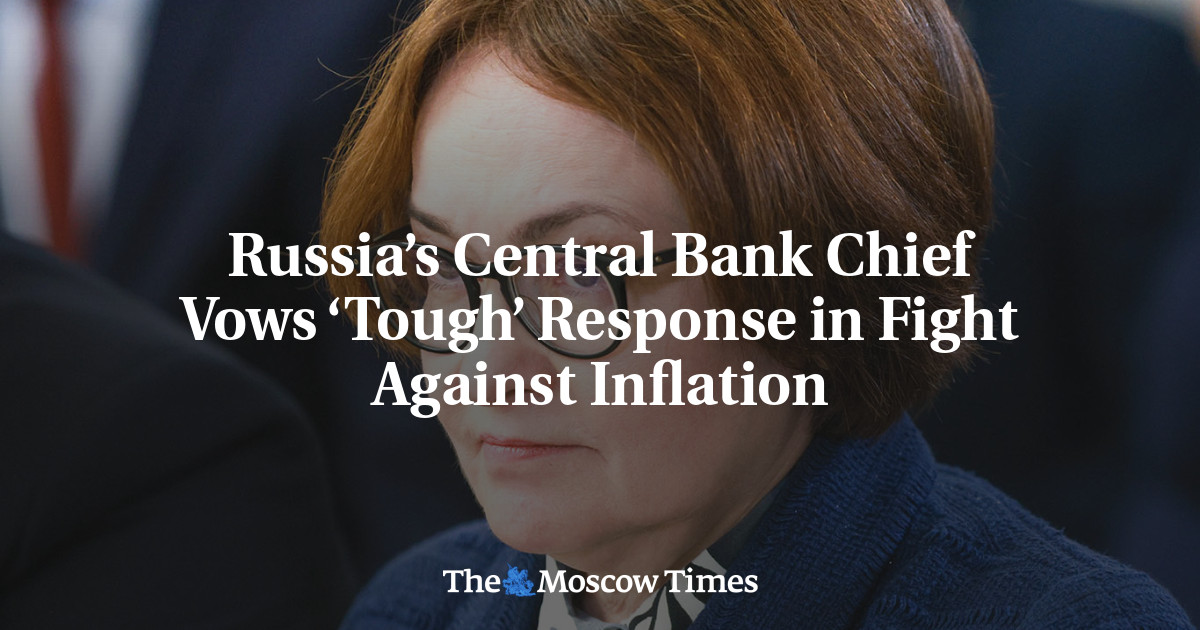
cross-posted from: https://feddit.org/post/4321125
> Russian Central Bank Governor Elvira Nabiullinawarned comments, made to a group of State Duma lawmakers, come a week after the Central Bank hiked its key rate to a record-high 21%, taking it even further than the emergency rate of 20% initially introduced after the February 2022 invasion of Ukraine. > > “With high inflation, economic growth cannot be sustainable,” the Central Bank head told Russian lawmakers. “It’s a dangerous illusion to think that increased inflation can be reliably kept within a certain zone.” > > “That’s why we’re not planning to take any shortcuts as we move toward our 4% target,” she added, defending the regulator’s tight monetary policy as an “inevitable reaction to what’s happening in the economy.” > > [...] > > Seasonally adjusted price growth in September rose to 9.8% year-on-year from 7.5% in August. Core inflation, meanwhile, increased to 9.1% from 7.7% over the same period. > > [...] > > Russia has faced volatile prices since President Vladimir Putin sent troops into Ukraine in February 2022, triggering a barrage of Western sanctions and strict countermeasures in a bid to stabilize the economy. So, too, has defense spending soared as Moscow ramps up arms production for the war in Ukraine. > > Russia’s draft budget for 2025, passed by lawmakers in its first reading last week, allocates around one-third of total state spending — or 6.3% of GDP — to the military, a figure unprecedented since the days of the Cold War. > > Given that so much of the current spending is driven by the state, which is less responsive to higher borrowing costs, analysts fear that raising interest rates may not be an effective measure against inflation. > > [...] > > Analysts have cautioned that Russia may be entering a period of “inflation without growth,” while also warning the economy is inching closer toward stagflation — when the economy grows slowly and prices shoot up.
cross-posted from: https://feddit.org/post/4320639
> - Chinese citizens' seemingly popular attitudes toward their government as party propaganda gained in direct surveys -and covered by China Central Television, Xinhua, China Global Television Network, China Dailyand other state-controlled outlets- provide a false narrative as survey respondents conceal their opposition to the regime due to the threat of repression. > - Deeper analyses find that Chinese citizens are far more fearful of expressing opposition to the regime under its leader Xi Jinping than in other autocracies, suggesting that observers should be sceptical about public opinion surveys in China that rely on direct questioning. > - The [Chinese Communist Party] CCP’s sprawling internal security apparatus compels citizens to engage in widespread self-censorship, at a rate nearly three times higher than in Vladamir Putin’s Russia. > - Researcher say the CCP confronts widespread frustration. Its recent policies, including the increase in repression and sabre-rattling over Taiwan, should be seen as an effort to contain this frustration. > > [Edit typo.]
Russian Central Bank Governor Elvira Nabiullina warned Thursday that “more drastic changes” in monetary policy may be needed as the country’s rumbling war economy drives inflation far above target levels.
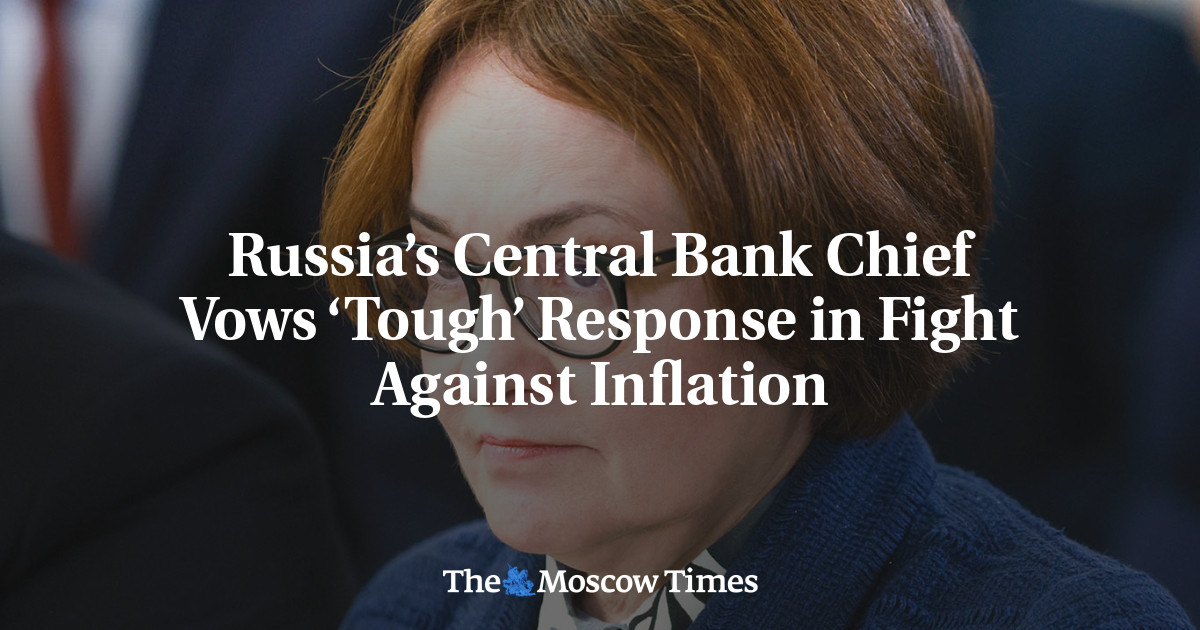
Russian Central Bank Governor Elvira Nabiullinawarned comments, made to a group of State Duma lawmakers, come a week after the Central Bank hiked its key rate to a record-high 21%, taking it even further than the emergency rate of 20% initially introduced after the February 2022 invasion of Ukraine.
“With high inflation, economic growth cannot be sustainable,” the Central Bank head told Russian lawmakers. “It’s a dangerous illusion to think that increased inflation can be reliably kept within a certain zone.”
“That’s why we’re not planning to take any shortcuts as we move toward our 4% target,” she added, defending the regulator’s tight monetary policy as an “inevitable reaction to what’s happening in the economy.”
[...]
Seasonally adjusted price growth in September rose to 9.8% year-on-year from 7.5% in August. Core inflation, meanwhile, increased to 9.1% from 7.7% over the same period.
[...]
Russia has faced volatile prices since President Vladimir Putin sent troops into Ukraine in February 2022, triggering a barrage of Western sanctions and strict countermeasures in a bid to stabilize the economy. So, too, has defense spending soared as Moscow ramps up arms production for the war in Ukraine.
Russia’s draft budget for 2025, passed by lawmakers in its first reading last week, allocates around one-third of total state spending — or 6.3% of GDP — to the military, a figure unprecedented since the days of the Cold War.
Given that so much of the current spending is driven by the state, which is less responsive to higher borrowing costs, analysts fear that raising interest rates may not be an effective measure against inflation.
[...]
Analysts have cautioned that Russia may be entering a period of “inflation without growth,” while also warning the economy is inching closer toward stagflation — when the economy grows slowly and prices shoot up.
cross-posted from: https://feddit.org/post/4320639
> - Chinese citizens' seemingly popular attitudes toward their government as party propaganda gained in direct surveys -and covered by China Central Television, Xinhua, China Global Television Network, China Dailyand other state-controlled outlets- provide a false narrative as survey respondents conceal their opposition to the regime due to the threat of repression. > - Deeper analyses find that Chinese citizens are far more fearful of expressing opposition to the regime under its leader Xi Jinping than in other autocracies, suggesting that observers should be sceptical about public opinion surveys in China that rely on direct questioning. > - The [Chinese Communist Party] CCP’s sprawling internal security apparatus compels citizens to engage in widespread self-censorship, at a rate nearly three times higher than in Vladamir Putin’s Russia. > - Researcher say the CCP confronts widespread frustration. Its recent policies, including the increase in repression and sabre-rattling over Taiwan, should be seen as an effort to contain this frustration. > > [Edit typo.]
- Chinese citizens' seemingly popular attitudes toward their government as party propaganda gained in direct surveys -and covered by China Central Television, Xinhua, China Global Television Network, China Dailyand other state-controlled outlets- provide a false narrative as survey respondents conceal their opposition to the regime due to the threat of repression.
- Deeper analyses find that Chinese citizens are far more fearful of expressing opposition to the regime under its leader Xi Jinping than in other autocracies, suggesting that observers should be sceptical about public opinion surveys in China that rely on direct questioning.
- The [Chinese Communist Party] CCP’s sprawling internal security apparatus compels citizens to engage in widespread self-censorship, at a rate nearly three times higher than in Vladamir Putin’s Russia.
- Researcher say the CCP confronts widespread frustration. Its recent policies, including the increase in repression and sabre-rattling over Taiwan, should be seen as an effort to contain this frustration.
[Edit typo.]
China is trying to silence Dutch journalists in China as well as Chinese dissidents in the Netherlands, researchers at the Leiden University have discovered. The methods employed vary from “spreading propaganda and misinformation, to far-reaching intimidation of journalists and their sources, person...
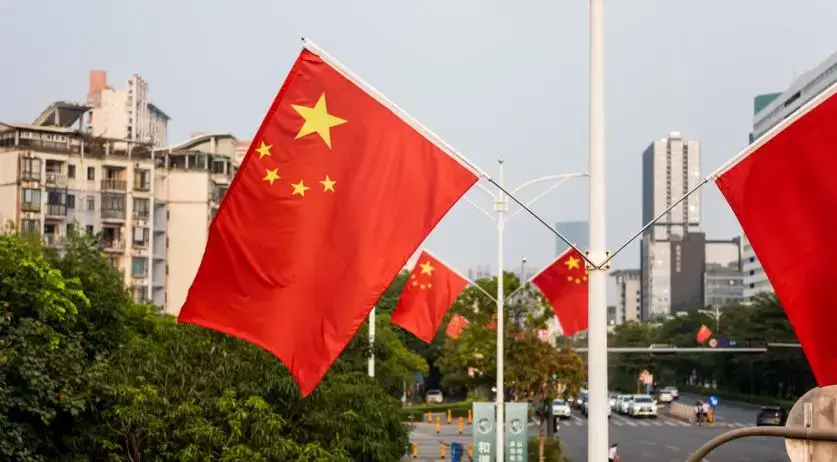
cross-posted from: https://feddit.org/post/4295120
> China is trying to silence Dutch journalists in China as well as Chinese dissidents in the Netherlands, researchers at the Leiden University have discovered. > > The methods employed vary from “spreading propaganda and misinformation, to far-reaching intimidation of journalists and their sources, personally targeted smear campaigns, cyber infiltration, and identity fraud: in the Netherlands, Europe and worldwide." The researchers said this is a worrying development. > > [...] > > This inquiry was prompted by a story written by journalist Marije Vlaskamp of the Volkskrant, who reported that unknown individuals were filing bomb threats under her name. She had received a message on Telegram in which someone demanded she take an article criticizing China offline. > > According to researchers from Leiden University, China is focused on “a war of attrition on critical voices on China, so that they become less active, get phased out, or give up completely.” This has affected Dutch correspondents in China but also Chinese people in the Netherlands who support the opposition in Hong Kong, LGBTI people, Tibetans, and supporters of the Uyghurs. > > They have to deal with “intimidation tactics that are common in China” and therefore apply "self-censorship and self-surveillance as standard.” The researchers note that China primarily employs subtle pressure tactics pinpricks that only those with extensive background knowledge can fully understand > > One example noted that intermediaries are sometimes used to approach critics. They are able to make it clear to those targeted that they are being watched and that private information about them has been obtained.
China is trying to silence Dutch journalists in China as well as Chinese dissidents in the Netherlands, researchers at the Leiden University have discovered. The methods employed vary from “spreading propaganda and misinformation, to far-reaching intimidation of journalists and their sources, person...

cross-posted from: https://feddit.org/post/4295120
> China is trying to silence Dutch journalists in China as well as Chinese dissidents in the Netherlands, researchers at the Leiden University have discovered. > > The methods employed vary from “spreading propaganda and misinformation, to far-reaching intimidation of journalists and their sources, personally targeted smear campaigns, cyber infiltration, and identity fraud: in the Netherlands, Europe and worldwide." The researchers said this is a worrying development. > > [...] > > This inquiry was prompted by a story written by journalist Marije Vlaskamp of the Volkskrant, who reported that unknown individuals were filing bomb threats under her name. She had received a message on Telegram in which someone demanded she take an article criticizing China offline. > > According to researchers from Leiden University, China is focused on “a war of attrition on critical voices on China, so that they become less active, get phased out, or give up completely.” This has affected Dutch correspondents in China but also Chinese people in the Netherlands who support the opposition in Hong Kong, LGBTI people, Tibetans, and supporters of the Uyghurs. > > They have to deal with “intimidation tactics that are common in China” and therefore apply "self-censorship and self-surveillance as standard.” The researchers note that China primarily employs subtle pressure tactics pinpricks that only those with extensive background knowledge can fully understand > > One example noted that intermediaries are sometimes used to approach critics. They are able to make it clear to those targeted that they are being watched and that private information about them has been obtained.
Or maybe a proxy war of democracies against dictatorships.
I didn't miss the point, but this is a different topic. We need to provide housing, end homelessness and possibly the right to a bank account for everyone. These are different things.
Also nobody agreed to protect Ukraine for giving up nukes.
This is irrelevant. We have to do it anyway, no matter whatever they agreed upon 30 years ago.
Letter: We are in despair at the [UK's] Labour party’s U-turn on Uyghur genocide ruling
We were deeply disturbed to read your report about David Lammy’s visit to China that highlighted how our Labour government – headed by a human rights lawyer – has decided to backtrack on plans for formal recognition of acts of genocide in order to facilitate trade deals with China [...]
This is not about 'neoliberals' but about foreign malicious actors attacking digital systems for no reason.
Affordable housing and the threat by malicious actors to attack digital payment systems are two different things. Homelessness has to be addressed, of course, but we are dealing here with something else.
This article has been published on 24 February 2020, exactly 2 years before Russia's full-scale invasion of Ukraine. They may change their mind like Sweden and Norway are doing.
[Edit typo.]
In addition to what others have already said, China wants a chunk of Siberia for what it calls the "polar silk road". Climate change will open the possibility of a navigable Arctic sea route connecting North America, Est Asia, and Europe. Such a route is a shorter and more economically viable transportation option than the current route via the Indian Ocean and the Red Sea. But for this, China needs better access to the Arctic.
Someone has posted in the meantime that Norway takes Israel to the International Court of Justice: https://feddit.org/post/4234663
What would one expect from this kind of politician. He has other priorities: After Israel's Knesset approved final voting for two bills aimed at blocking UNRWA in areas under Israeli control, Geert Wilders congratulated the Jewish state in a Tuesday post on X/Twitter: 'Well done Israel. Terrorists are terrorists, whatever their disguise.'
‘Entire population of north Gaza at risk of dying,’ warns UN’s top humanitarian official
“What Israeli forces are doing in besieged north Gaza cannot be allowed to continue,” said Joyce Msuya, acting Under-Secretary-General for Humanitarian Affairs and UN Emergency Relief Coordinator, in a statement [...] Hospitals have been hit, health workers detained and first responders prevented from rescuing people trapped under the rubble, she noted. “Shelters have been emptied and burned down…families have been separated, and men and boys taken away by the truckload,” she added.
According to reports, hundreds of Palestinians have been killed since Israeli security forces renewed their offensive in northern Gaza earlier this month. Tens of thousands of people have been displaced again.
Yes :-) Now I've got it, sorry.
There are even reports in Chinese state-media fyi, but I didn't want to link to these sources.
This is maybe a devastating example why centralization and central planning is a bad and dehumanizing act for individuals in a society. There is a good documentary about China's so-called "Ghost Children". These are those who were born as younger siblings during China's One Child policy.
The documentary was made in 2014. It shows how quickly things can change, and how people suffer now and then due to bad politics.
It's really worth your time.
China's Ghost Children -- (video, 36 min)
Second or third children born illegally during China’s One Child Policy - implemented between 1979 and 2015 to curb the country's population growth by restricting many families to a single child - are banned from marrying, having children or simply boarding a train. Condemned to a non-life, these ghost children do not officially exist according to the Chinese state. ARTE Reportage goes in search of these ‘Haihaizi’, those children who should not have been born.
[Edit typo.]
This is maybe a devastating example why centralization and central planning is a bad and dehumanizing act for individuals in a society. There is a good documentary about China's so-called "Ghost Children". These are those who were born as younger siblings during China's One Child policy.
The documentary was made in 2014. It shows how quickly things can change, and how people suffer now and then due to bad politics.
It's really worth your time.
China's Ghost Children -- (video, 36 min)
Second or third children born illegally during China’s One Child Policy - implemented between 1979 and 2015 to curb the country's population growth by restricting many families to a single child - are banned from marrying, having children or simply boarding a train. Condemned to a non-life, these ghost children do not officially exist according to the Chinese state. ARTE Reportage goes in search of these ‘Haihaizi’, those children who should not have been born.
[Edit typo.]
This is maybe a devastating example why centralization and central planning is a bad and dehumanizing act for individuals in a society. There is a good documentary about China's so-called "Ghost Children". These are those who were born as younger siblings during China's One Child policy.
The documentary was made in 2014. It shows how quickly things can change, and how people suffer now and then due to bad politics.
It's really worth your time.
China's Ghost Children -- (video, 36 min)
Second or third children born illegally during China’s One Child Policy - implemented between 1979 and 2015 to curb the country's population growth by restricting many families to a single child - are banned from marrying, having children or simply boarding a train. Condemned to a non-life, these ghost children do not officially exist according to the Chinese state. ARTE Reportage goes in search of these ‘Haihaizi’, those children who should not have been born.
[Edit typo.]
When science showed in the 1970s that gas stoves produced harmful indoor air pollution, the industry reached for tobacco’s PR playbook -- (November 2023)
In 1976, beloved chef, cookbook author and television personality Julia Child returned to WGBH-TV’s studios in Boston for a new cooking show, “Julia Child & Company,” following her hit series “The French Chef.” Viewers probably didn’t know that Child’s new and improved kitchen studio, outfitted with gas stoves, was paid for by the American Gas Association.
While this may seem like any corporate sponsorship, we now know it was a part of a calculated campaign by gas industry executives to increase use of gas stoves across the United States. And stoves weren’t the only objective. The gas industry wanted to grow its residential market, and homes that used gas for cooking were likely also to use it for heat and hot water.
[...] The gas industry relied on Hill & Knowlton, the same public relations company that masterminded the tobacco industry’s playbook for responding to research linking smoking to lung cancer. Hill & Knowlton’s tactics included sponsoring research that would counter findings about gas stoves published in the scientific literature, emphasizing uncertainty in these findings to construct artificial controversy and engaging in aggressive public relations efforts.
The OSCE report (pdf) says:
Election day was generally procedurally well-organized and administered in an orderly manner but marked by a tense environment and several incidents of physical altercations and widespread intimidation of voters, as well as citizen observers. Voter identification (VID) and vote-counting devices (VCDs) were mostly operational, but the majority of voters in observed polling stations had difficulties operating the VCDs. Further, vote secrecy was potentially compromised in 24 per cent of observations, due to the manner of ballot insertion into VCDs or inadequate polling station layout. IEOM observers frequently reported indications of pressure on voters and overcrowding, and procedural inconsistencies.
In many cases, party representatives recorded the voting process and tracked voters, raising concerns about potential intimidation. While the presence of citizen and party observers contributed to transparency, many citizen observers appeared to act on behalf of contestants. During counting, procedural omissions included the improper handling of unused ballots, not announcing votes aloud and the IEOM noted inconsistencies in the determination of the validity of ballots. Tabulation was positively assessed, but the completeness and accuracy of results protocols was not consistently checked, with DECs citing that official results are finalized at the national level.
Addition for the report by Transparency International Georgia
The election day took place in the context of serious and substantial violations. At the end of the day, it became clear that the various problems identified during the monitoring of the election process during the day were part of a larger scheme, the purpose of which was to subvert the final result of the election [...] unprecedented pressure was exerted on the representatives of the monitoring organizations. There were physical attacks, verbal abuse, intimidation, expulsion from the electoral precincts without reason. In most cases, it was impossible to observe the voting process. In some cases, it was even necessary to evacuate the observers [...] there was a concentration of unauthorized persons in the polling stations and their surrounding areas, who were particularly aggressive towards both voters and observers. As always, this time too, in order to pressure and intimidate the voters, the ruling party used criminal groups [...] neither the election administration nor the law enforcement bodies reacted to the gross facts of the violation of the law. There was a clear impression that the persons involved in rigging the elections had guarantees that no one would raise the question of their responsibility, even though they committed crimes [...]
Yes, I too find that irritating. Maybe what he means is that Microsoft was innovative in the very beginning of the company's history, before PCs were part of everyone's household. But Gates' Microsoft soon started to pursue a very monopolistic policy. And it has been doing so to this day. (I can't compare that to Carlos Slim's conglomerate, though, due to a lack of knowledge about that.)
